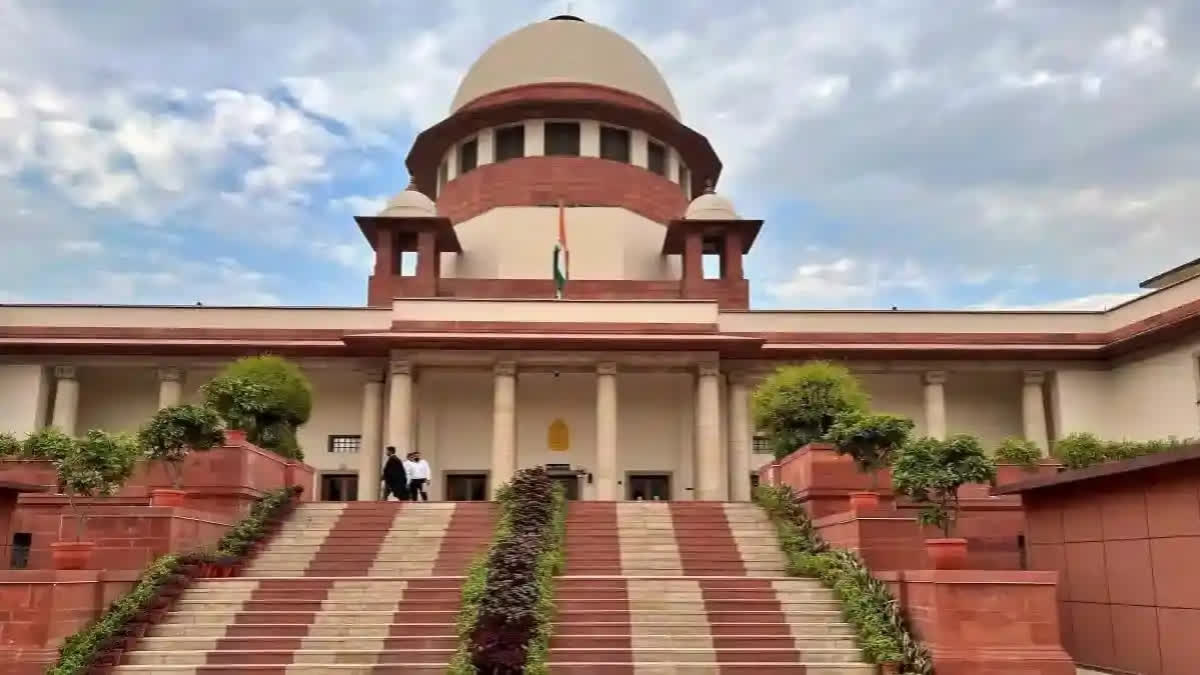New Delhi:The Supreme Court declined to stop the performance of 'puja' in the 'Vyas Tehkhana' (in the southern cellar of the structure) of Gyanvapi mosque. However, the apex court ordered status quo on the religious observances by the Hindus inside the mosque premises.
The mosque committee had moved the apex court against the Allahabad High Court order, which declined to entertain Muslim side’s plea against the Varanasi district court’s order and allowed the performance of 'puja' in the 'Vyas Tehkhana' (in the southern cellar of the structure) of Gyanvapi mosque.
A three-judge bench led by Chief Justice of India D Y Chandrachud and comprising justices J B Pardiwala and Manoj Misra said it will be appropriate to issue notice on the mosque committee’s plea. The bench said the tehkhana’s access is from the southern side and access to the mosque for offering namaz is from the northern side. “Bearing in mind the fact namaz is being offered unhindered by Muslims, and the pooja and worship by Hindu priests is confined to tehkhana, therefore it would be appropriate to maintain the status quo….”, said the bench.
“It is important to maintain the status quo, so that both communities can perform religious worship in above terms….", said the apex court, in its order.
Senior advocate Huzefa Ahmadi, representing the Anjuman Intezamia Masajid Committee, submitted that with the greatest respect, this is an extraordinary order passed by the trial court and then by the high court, and the effect of the order is to give final relief at the interim stage.
Ahmadi said they have occupied the place and the puja is taking place. He stressed that effectively the status quo ante as of 1993, that is of 30 years ago, is restored by the interim order of the court. The masjid committee expressed its apprehension before the apex court that the Gyanvapi mosque is being taken over bit by bit. “An overwhelming case is made out to stay this order…..the fact that any pooja was conducted in the cellar is also an averment….now there are applications pending for other areas to do things…..the serious apprehension is that bit by bit we will lose the entire mosque”, said the mosque committee’s counsel.
During the hearing, the CJI observed that the court can allow the namaz to continue since the access is from the northern side of mosque and the worship in the southern cellar can continue. The CJI added that if this were to be the position, then the court can issue notice and schedule the matter for hearing in July
Ahmadi insisted that his case is for absolute stay and if the court is allowing it for now, then there are other applications filed to stop namaz. Divan, representing the Vyas family, contended that this is not even a case for the court to issue notice and added that it is an interlocutory order which was confirmed by the high court by sound reasoning. Divan said that the 'tehkhana' and the mosque are at different levels and there are separate entrances.
Divan pressed that at the interlocutory stage, the apex court should not interfere and added that for generations Vyas family has been the pujari and pointed that the court has not granted final relief. Divan disagreed that the puja in the cellar could potentially create discord and added that both the district court and the high court passed well-reasoned orders while allowing Hindu devotees to offer worship under the supervision of a court-appointed receiver.
Divan pointed that the entry to the mosque for namaz is from the northern side and the entrance to the cellar is from the southern side, and added that the puja is going on since January 31, and there is no prejudice caused and no case is made for interference by the apex court. Divan insisted that the cellar was always with the Vyas family and it is recognized on a map prepared by the secretary of the state.
Ahmadi submitted that he is reminded of what Soli Sorabjee said " dark deeds are committed in the dark hours", and question haste shown by the state government and insisted that there should be some procedural fairness.
